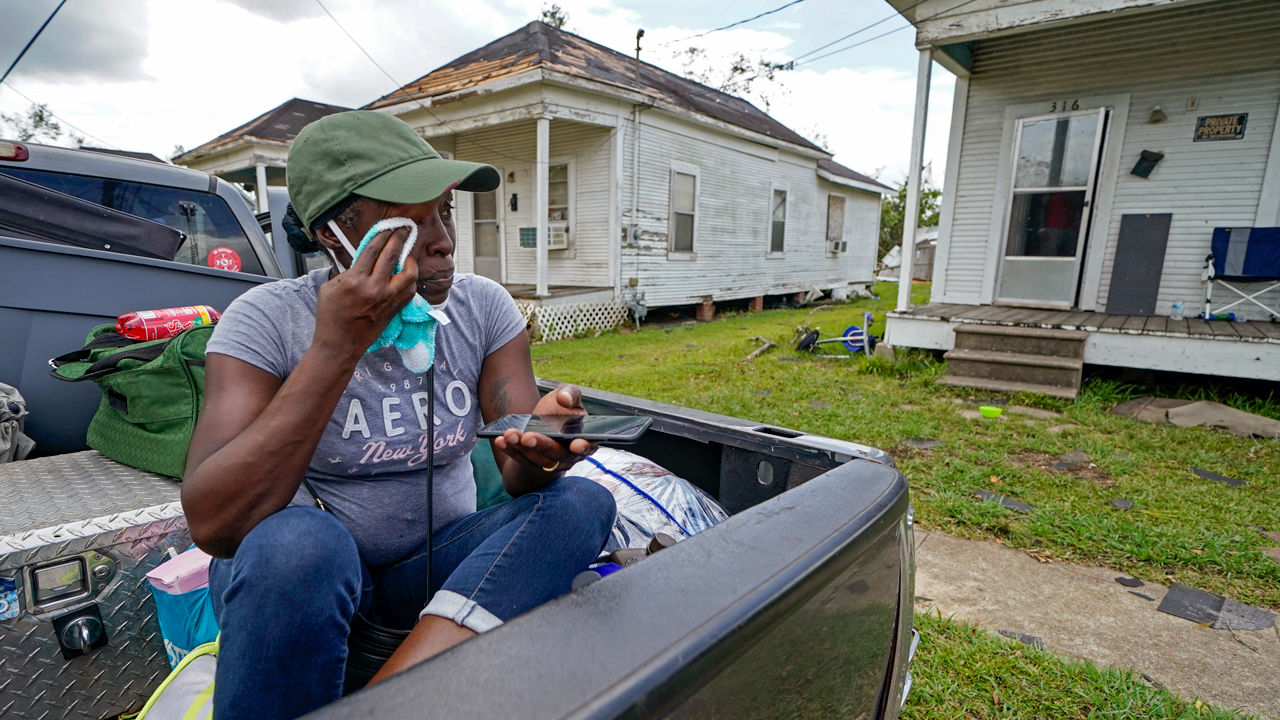
Linda Smoot, who evacuated from Hurricane Laura in a pickup truck with eight others, reacts as they return to see the damaged home of her niece for the first time, in Lake Charles, La., in the aftermath of the hurricane, Sunday, Aug. 30, 2020. (AP Photo/Gerald Herbert)
The researchers say their surveys and interviews have revealed that such stress can induce what they call “disaster fatigue”—a form of emotional exhaustion that can reshape how people make choices. And that fatigue, they say, could have major implications for emergency planners trying to encourage people to get out of harm’s way. Along the Gulf Coast, for instance, it was difficult get people to prepare for a second hurricane even as they were still digging out from the first, says Laura Myers, a social scientist at the University of Alabama, Tuscaloosa. It was “just really hard to get their attention … [and] to get them to step up and do all the preparation,” she says.